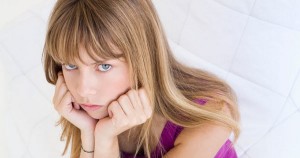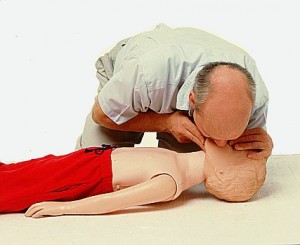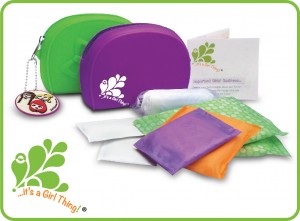 I’m learning very quickly about moody teenagers and trying to be tolerant, but I want to jump in a time machine and go forward 10 years because this is hell!
I’m learning very quickly about moody teenagers and trying to be tolerant, but I want to jump in a time machine and go forward 10 years because this is hell!
It seems like I cannot do or say anything that is right and any advise or solutions given feels like a lecture to them.
I understand that there are lots of hormones going on, our school had a night for year 7 parents and covered off areas around dealing with this change.
How to cope with teenage children:
- Don’t buy into schoolyard arguments, the kids will work it out
- Be a listener and be there but don’t try and solve their problems
- Be encouraging and be there but let them work things out in there own time
Adults brains apparently have a hormone called THP which has a calming influence, In our teenagers this same THP heightens anxiety – of course it does 🙂 . I keep reminding myself they are going through many new experiences and having to cope with new challenges like: hormonal change, body changes, developing identity, pressure from friends, and a developing sense of independence.
I am sure they don’t like the moods either. I asked her once..
Why are you being so rude to me? She replied “I dont know”?
So I just left it and I understood she wasn’t meaning to be rude and she didn’t like it either. I could tell she knew it was wrong.
These reminders are my savior, Thank God there are times where she is calm, happy, respectful and loving otherwise I would go completely out of my mind! So I am just trying to roll with it, provide support and stability. Still setting ground rules for respect as I expect her to be respectful to all people. I pick my battles, remain calm and try to redirect the negative behaviour.
A couple of tips in this areas could be:
- Pick your battles. If your teenager is basically behaving, ignore minor annoyances such as shrugs, raised eyebrows, or bored looks.
- Sometimes, teens may be inadvertently disrespectful. (Again, their brains are developing.) Calmly ask about their intention — for example, “That comment came out sounding pretty offensive. Did you mean to behave rudely?
I know its a stage that lots of kids go through, she is a beautiful girl and has a kind warm heart. If she is rude and I do discuss it, I make sure I talk about the behaviour not the person. I’m always trying to affirm her worth as a person even as I explain why her behavior was unacceptable.
Through the next few years (OMG), I’ll always be involved and interested in her everyday life and be interested in her sport and activities. Even during the times when she is unlovable, I will still give hugs, words of praise, little note in her lunch box with words of love often, because they need it and want unconditional love to help them get through it.
I came across this YouTube video and it reminds me that sometimes they DON’T KNOW why they are being rude and we shouldn’t get upset or take it personally.



 The power of a “Date with Dad” is all about “being there” and spending time talking with your kids, it is so profoundly meaningful that we often miss it. Kids thrive when their dads take the time to be 100% present and are available to them. A regular, “Date with Dad” with each of your kids separately is a great place to begin intentionally investing in the overall health and well-being of your child. Date nights, days or even mornings do not have to be complicated. They can be a simply getting an ice-cream and going for a walk or sit in the park and chat.
The power of a “Date with Dad” is all about “being there” and spending time talking with your kids, it is so profoundly meaningful that we often miss it. Kids thrive when their dads take the time to be 100% present and are available to them. A regular, “Date with Dad” with each of your kids separately is a great place to begin intentionally investing in the overall health and well-being of your child. Date nights, days or even mornings do not have to be complicated. They can be a simply getting an ice-cream and going for a walk or sit in the park and chat.



 Knowing the basics of performing CPR can be the difference between life or death. It could be a friend or heaven forbid your child! Being able to jump in and help can keep blood flowing through their body and keep vital organs alive whilst the ambulance is on the way. I remember watching a women pull her child from the river in Merimbula NSW and she just didn’t know what to do and stood there crying? I was young and thought just DO something DO something! Luckily a person nearby jumped in and started mouth to mouth and CPR while we waited for the ambulance.
Knowing the basics of performing CPR can be the difference between life or death. It could be a friend or heaven forbid your child! Being able to jump in and help can keep blood flowing through their body and keep vital organs alive whilst the ambulance is on the way. I remember watching a women pull her child from the river in Merimbula NSW and she just didn’t know what to do and stood there crying? I was young and thought just DO something DO something! Luckily a person nearby jumped in and started mouth to mouth and CPR while we waited for the ambulance. In this contemporary setting a father has an equal role in parenting his children and in many cases is the primary or sole carer. Dads are striving to be better role models in their sons and daughters lives but don’t necessarily have the confidence or the skill to handle all the issues that arise.
In this contemporary setting a father has an equal role in parenting his children and in many cases is the primary or sole carer. Dads are striving to be better role models in their sons and daughters lives but don’t necessarily have the confidence or the skill to handle all the issues that arise.
















Would you leave your front and back door open whilst your kids are at home?
This video has a very clear and simple message and should be watched with you kids…
http://youtu.be/_o8auwnJtqE
Here are some tips to keep your kids safe online and points for discussion
Some ideas to staying safe at home